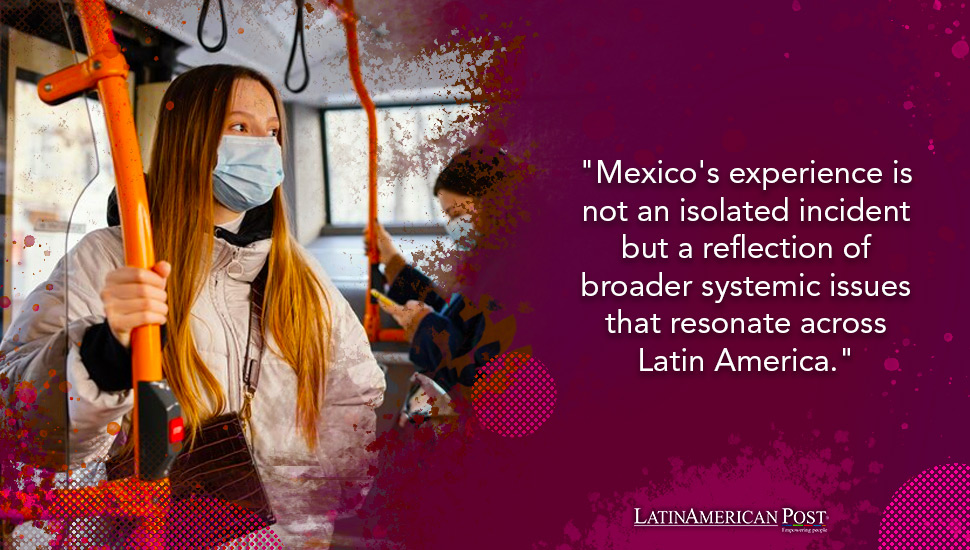Mexico Could Have Saved 224,000 Lives with Better Pandemic Management

Inadequate pandemic management in Mexico could have prevented over 224,000 deaths, revealing systemic health and policy failures. This critique underscores the urgent need for transparent, evidence-based policies and more robust healthcare infrastructure across Latin America.
The devastating toll of the COVID-19 pandemic in Mexico, with the tragic loss of more than 334,000 lives, paints a grim picture of missed opportunities and systemic failures. A report by an independent commission comprising 17 Mexican scientists, researchers, and professionals suggests that over 224,000 lives could have been saved with a more effective response. This assertion highlights the magnitude of the crisis and serves as a critical lens through which we can examine the broader implications for Latin America.
Government Strategy: Personalization Over Science
The commission’s preliminary findings reveal that Mexico’s high mortality rate cannot be fully explained by its healthcare system’s condition, demographic factors, or prevalent health issues like diabetes and obesity. Instead, it points to a government strategy marred by excessive personalization, rejection of scientific deliberation, and a troubling disconnection from the empirical evidence necessary to navigate such a crisis effectively.
Mexico’s experience is not an isolated incident but a reflection of broader systemic issues that resonate across Latin America. Countries like Brazil and Peru also faced significant challenges, with high mortality rates exacerbating existing inequalities and revealing the fragility of public health systems in the region. The pandemic’s impact has been particularly severe on vulnerable and low-income populations, exacerbating socio-economic disparities and underscoring the urgent need for comprehensive health and economic reforms.
The report criticizes the Mexican government’s communication strategy, which downplayed the severity of the pandemic, manipulated data, and prioritized political over public health objectives. This approach hindered effective crisis management and eroded public trust, a crucial element in any public health emergency response.
Moreover, regressive reforms and budget cuts exacerbated the health system’s vulnerabilities, weakening its capacity to respond effectively to the crisis. The lack of economic stimuli for vulnerable sectors further deepened the pandemic’s socio-economic impact, increasing healthcare expenses and affecting life expectancy, particularly among low-income people.
Towards Comprehensive Reform
It is imperative to learn from these mistakes and implement strategic changes to prevent such catastrophic outcomes. This includes fostering a culture of transparency, accountability, and evidence-based policymaking and strengthening healthcare infrastructure and social safety nets to protect the most vulnerable.
Latin American countries must take collective action to address these systemic challenges. Regional cooperation and sharing best practices can help build more resilient public health systems that respond effectively to future crises. Investments in public health, research, and development are crucial to enhancing preparedness and ensuring that the lessons learned from the COVID-19 pandemic translate into actionable policies and more robust healthcare systems.
Collective Action for Resilience
As Mexico and other Latin American nations move forward, the focus should be on creating a more equitable and health-resilient society. This entails addressing the immediate aftermath of the pandemic and tackling the underlying structural issues that made these countries particularly susceptible to such a devastating impact.
The upcoming elections in Mexico and elsewhere in Latin America present an opportunity to prioritize health in the political agenda. Voters should demand candidates commit to comprehensive health policies, including managing long-term COVID-19 effects and strengthening health systems to withstand future emergencies.
Also read: Electoral Violence in Mexico: A Call for Protection and Peace
In conclusion, the COVID-19 pandemic has laid bare the vulnerabilities and shortcomings of Mexico and Latin America’s health and governance systems. The path to recovery and resilience lies in acknowledging these failures, learning from them, and implementing robust reforms to ensure the region can face future health crises with more extraordinary fortitude and equity. The call for change is clear, and the time for action is now.





